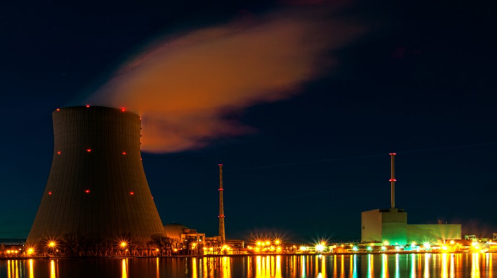Serene atomic innovation use is a vital focal point of Pakistan’s non military personnel atomic program. Pakistan’s most memorable Thermal energy station (NPP), KANUPP-1, was charged in 1971, giving perfect, dependable, and cost-proficient energy for a long time with a surprising wellbeing record. From that point forward, six extra NPPs — the most recent of which was initiated on February 1, 2023 — have expanded the extent of thermal power use in Pakistan’s public lattice. During his visit to Pakistan in February 2023, Chief General Global Nuclear Energy Organization (DG IAEA) Rafael M Grossi accentuated that Pakistan has the specialized and designing ability to add extra NPPs to its public lattice.
Worldwide interest for financially savvy, solid, and clean energy sources has developed. The world is encountering quickly changing environmental change impacts. Additionally, the continuous Russia-Ukraine War has made variances in worldwide energy supplies. Thermal power is a clean and financially savvy wellspring of force that offers a few advantages over customary petroleum products and sustainable sources. Dissimilar to coal and flammable gas, thermal power doesn’t produce destructive contaminations like carbon dioxide and ozone depleting substances, making it ecologically manageable. What’s more, thermal energy stations are intended to run consistently for stretched out periods to give a consistent and cost-effective wellspring of power creation, restricting energy supply changes.
The ongoing financial emergency in Pakistan has carried the country’s unfamiliar trade to an eight-year low. Fears of potential default request policymaker consideration regarding energy options. Thermal power, previously contributing essentially to the public framework by giving savvy and clean energy, can be focused on to safeguard exhausting unfamiliar trade holds.
Unrefined petroleum, oil based goods, and flammable gas represented close to 33% of Pakistan’s import bill in December 2022. However generally dependent on bringing in energy from abroad, Pakistan’s energy area actually battles to meet the populace’s developing energy interest. The Pakistani rupee’s depreciation and the worldwide ascent in oil costs have expanded strain on Pakistan’s unfamiliar trade saves by raising the expenses of bringing in energy. On the off chance that left ignored, the ongoing energy emergency will devastatingly affect Pakistan’s now disabled economy. To conquer this energy uncertainty, Pakistan ought to look for elective answers for meet its homegrown energy needs and guarantee that its energy industry is feasible over the long haul.
From July 2020 to Walk 2021, NPPs created 2,530 megawatts of energy. In the next year, from July 2021 to Walk 2022, NPPs expanded limit by 39% to 3,530 megawatts. During this time, NPPs created 12.5 percent of combined energy creation in Pakistan, working proficiently and giving a predictable and stable power supply at ideal limit levels. In accordance with this, the nation has laid out an objective of accomplishing 8,000 megawatts of thermal power limit by 2030.
As per Public Electric Power Administrative Power (NEPRA), in 2022, homegrown thermal power creation brought about significant reserve funds contrasted with bringing in non-thermal power. Subsequent to representing advance portions on NPPs, Pakistan saved $3 billion contrasted with bringing in oil, $2.2 billion in bringing in petroleum gas, and $1.6 billion in bringing in coal. Expanding the thermal power limit would considerably add to unfamiliar trade reserve funds for Pakistan by diminishing the country’s reliance on imported fuel and giving less expensive energy to the public framework.
Pakistan has a wonderful record of atomic wellbeing, security, and forestalling atomic mishaps. The Atomic Danger Drive has perceived Pakistan’s endeavors in working on its atomic security and positioned the country as the most superior state on its Atomic Security List. During his new visit, DG IAEA Rafael Grossi praised Pakistan for its hearty and powerful atomic wellbeing and safety efforts.
The reception of thermal power accompanies a few difficulties to be thought about, particularly environment related risks. Pakistan has been reliably positioned among the main ten most weak nations on the environment risk file. The nation is presented to seismic tremor inclined zones and environment fiascoes, which request a successful strategy reaction. Mishaps can happen in any industry. Be that as it may, each industry gains from mishaps and does whatever it takes to further develop wellbeing.







